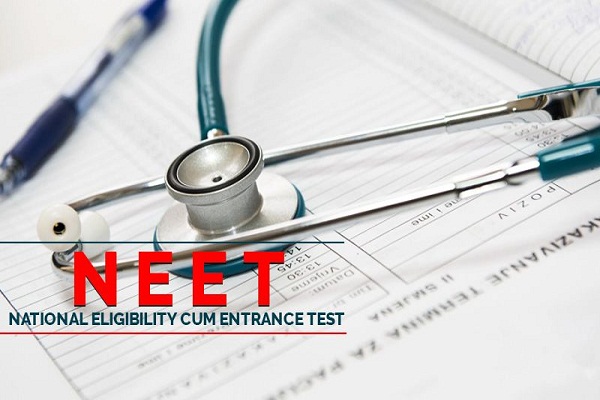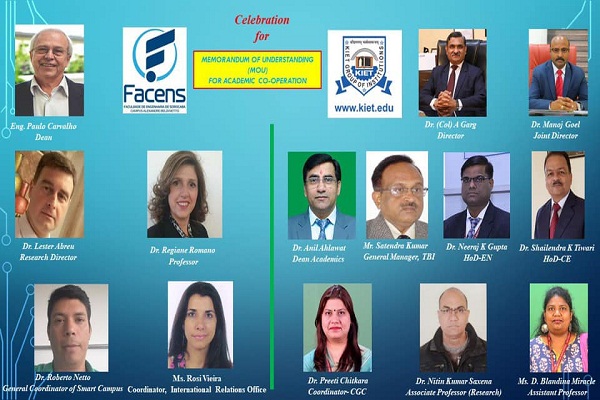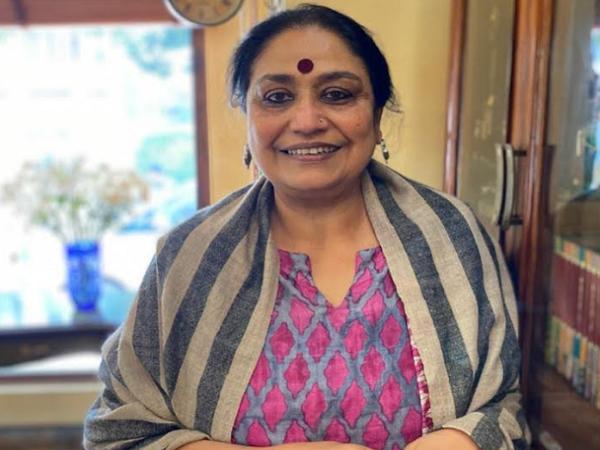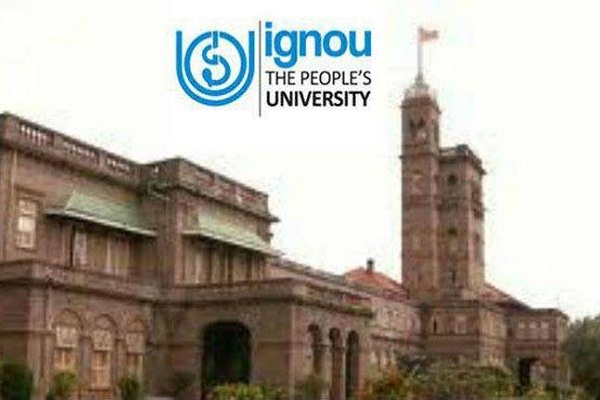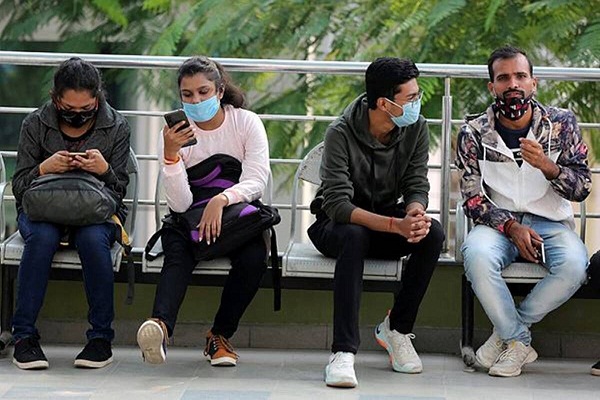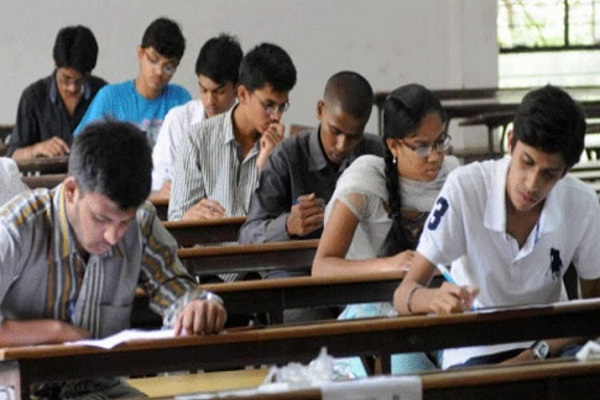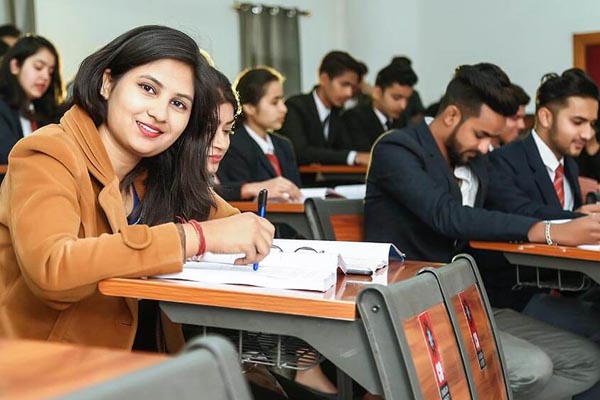What was the idea behind starting Shree Kant Bhushan (SKB) Little Folks preschool?
Shree Kant Bhushan (SKB) Little Folks Preschool was started in 1980 in the city of Kanpur with just 13 students and one teacher in a single classroom. 40 years on, the school is one of the pioneers in early childhood education and sought after preschools in Kanpur. My father, mother and grandparents based their lives and work on the core belief that humanity is achieved from a holistic and well-rounded education. I have lived this philosophy and my dedication, commitment to education continued to grow at an early age of 22, as I mentored my three younger sisters after my father’s sudden demise. I named the school after my father.
Within a few years, the number of students and teachers rose substantially, and almost instantly, SKB Little Folks had become an education brand to reckon with. A common woe among sensitive conversations around the social evils in our country is the need for holistic education in smaller parts of the country. The lack of such an education is, often, considered the root of a large part of the malaise. Almost as an answer to that, SKB Little Folks has been a platform to create real, tangible change.
With the vision of ‘Transforming Early Childhood Education’, the school has been at the forefront of early childhood education. SKB Little Folks preschool adopts a whole-brain approach to learning and takes inspiration from the progressive Reggio Emilia & play-based methods of teaching to create a robust and innovative learning environment and focus on holistic growth of kids- emotional intelligence (ability to be in control of and express one’s emotions), intellectual intelligence (ability to engage in critical thinking), empathy, mindfulness, critical enquiry, social and emotional behavior.
With an aim to impart the highest quality of education to young minds, the school caters to children aged 2-and-a-half to 6, where they learn at their own pace to hone their skills and creativity, while the teacher acts as a gentle facilitator. The low student-to-teacher ratio of 10:1 ensures that teachers work closely with each student, guiding and helping them develop their skills. The impact of the school has been enormous. It has trained over 400 teachers till date, who in turn have impacted several thousands of kids.
Also read: Uttar Pradesh Boosting Educational Ecosystem for Growth of All
The school values children and their needs. The mission of the school is to enable kids to be knowledgeable, kind, committed, globally minded and confident. Democracy, mutual respect, honesty, inclusiveness, caring, a secure environment and gender equality are some of the core values which we cherish at SKB Little Folks preschool.
How COVID-19 pandemic has affected the preschools recently?
The first 5 years of life are formative, and socializing definitely plays an important role in a child’s holistic development. Having said that, kids in this age group are vulnerable as it is difficult to expect them to wear masks at all times and strictly follow distancing/hygiene protocols. At this stage, reopening preschools presents far too great a risk, not only endangering the children, but their parents, grandparents, and other household members.
We, at SKB Little Folks, have devised an online curriculum, based on activities, team work and socializing. However, I do understand that screen time needs to be reduced and that children need to play outside. We have started inviting kids in groups of two to four to visit school at different timings. A teacher watches them closely to ensure safety and hygiene protocols are met at all times. All our classrooms, equipment and outdoor play areas are sanitized and social distancing norms maintained. It is a difficult situation but with the new vaccinations, there is now a ray of hope.
The NEP 2020, has showcased huge reforms for education, how it will help preschools ?
Several welcome steps were noted for the education sector, as India received its first budgetary announcement after the launch of the much-lauded National Education Policy (NEP), as a paradigm shift in the spectrum of Indian Education. National Education Policy was ear-marked as a document of success for the sector as it skillfully articulated a need for integrating ‘Early Childhood Care and Education’ in the mainstream narrative of formal schooling and providing a much-needed push. Strengthening and expanding the Anganwadi network can go a long way in disseminating ECCE education to the most rural corners of the country.
In a year where schools have closed down, learning is virtual and education has been compromised for crores of students, a keener focus on early childhood education and foundational learning skills with a robust digital infrastructure would ensure that students are back on track. The government with its announcement of 15000 model ‘exemplar schools’ has laid out the foundations to ensure that we are on that path to achieve our NEP vision however a greater budgetary allocation for the Samagra Shiksha Abhiyaan, would help protect our children’s right to education and actualize the ambitious goals of the NEP on ground.
Why preschools are important for a child?
Neuroscience research confirms that the first six years in a child’s life are crucial and extremely formative, with 85% of the child’s brain developing during this time. In a study conducted by the National Council of Educational Research and Training (NCERT) on the “The impact of pre-school education on retention in primary grades” (1992), a strong interdependence between pre-school education and retention, school attendance, and improved learning outcomes was noted. Simultaneously it becomes equally important to support institutional capacity building of teachers to ensure that this phase of discovery-based learning between ages 3-8 in a child’s life is well supported by nurturing pre-school educators. I The school believes that the maximum learning takes place in the first ten years of a person’s life. Therefore, children deserve to get the best learning exposure and environment at the preschool level.
With an aim to impart the highest quality of education to young minds, the school caters to children aged 2-and-a-half to 6, where they learn at their own pace to hone their skills and creativity, while the teacher acts as a gentle facilitator. The children are given free reign in the classroom to explore, question and innovate while teachers foster their curiosity by providing an environment filled with possibilities. The school endeavors to realise Dr. Montessori’s ultimate aim: to support the natural development of the human being from birth to maturity, enabling children to become the transforming elements of society leading to a harmonious and peaceful world.
The curriculum emphasizes the need for “learning by doing” to encourage students to leverage their curious minds and fosters creative expression through music, art and movement. The curriculum is dynamic and responsive, and meets the child where they are and tailors each student’s curriculum based upon talents and interests rather than age or grade.
Also read: New age school education for students
The low student-to-teacher ratio of 10:1 ensures that teachers work closely with each student, guiding and helping them develop their skills. The impact of the school has been enormous. It has trained over 400 teachers till date, who in turn have impacted several thousands of kids.
The school aims to empower women, provide access to great learning to kids and build strong communities by stronger collaboration amongst teachers, parents and students.
What are your expansion plans?
It is our goal to make SKB Little Folks Preschool a bridge between the home and school. A place where the child can have experiences that will help develop good attitudes, habits, and skills. These abilities help the child meet new situations with confidence. Therefore, the emphasis during the preschool years is on:
· Learning experiences that will promote the child’s total development: socially, physically, intellectually, culturally and emotionally, and
· Involvement of parents, implying the recognition of the individual child’s strengths and needs by the teacher in consultation with his/her parents and the director of the school.
The school celebrates the “unique genius in every child” with an educational philosophy called constructivism, which is a “learning by doing” approach that academically challenges each student to be an active learner, utilize interdisciplinary thinking, tap into their emotional intelligence and have civic-mindedness. In the classrooms, children are immersed in an environment that encourages their active imaginations to come alive.
The students receive a balance of structured class time and free play and teachers work with them on developing their social-emotional skills and independence. The curriculum is child-centered and uses a hands-on approach to teach critical thinking and problem-solving skills.
Children are encouraged to explore, play, wander, and ask questions and find answers through observation and experimentation. The school emphasizes the importance of parental involvement so it’s common to find parents helping in the classroom, chaperoning field trips or participating in school-wide events.
The core curriculum focuses on developing social-emotional skills by working in small groups so children learn how to interact with each other. They also work on developing gross and fine motor skills, introducing a scientific view of the world through simple experiments. Every student at our school is respected as an individual.
Dignitaries from across India, Asia, the UK, and USA have visited my preschool in Kanpur and have invited me to set up similar ventures in their respective cities/countries. In 1998, I received the “Best Educationist” award by the Femina Magazine. In 2010, I was awarded the “Entrepreneur of the Year” award by TiE (The Indus Entrepreneurs), Outstanding Woman award by FICCI FLO among others.
After 40 years, I am ready to expand my school within India for its legacy to live on. Sharing the same vision is of utmost importance to me while choosing partners to run SKB Little Folks preschool. If I do find like-minded people who share my passion of educating and loving children, then yes I’m all for expanding my school beyond Kanpur.
What’s your preschool’s USP?
Building on a legacy of excellence in early childhood education, the Shree Kant Bhushan Little Folks preschool today is one of the best that one can find. While the school has grown both in numbers and quality, the management has firmly restricted the number of children on its rolls, to ensure the qualitative input given to each child. The low student-to-teacher ratio of 10:1 ensures that teachers work closely with each student, guiding and helping them develop their skills. The impact of the school has been enormous. It has trained over 400 teachers till date, who in turn have impacted several thousands of kids.
Shree Kant Bhushan Little Folks Preschool aims at imparting education in the emotional, social, language, and creative spheres, apart from pure book-oriented knowledge, to prepare little folks for more challenging pursuits in the future.
Discovering our little ones’ latent talents, making them confident individuals, and developing their capacity for application rather than rote skills, has been the most important to the Shree Kant Bhushan Little Folks preschool management.
Lessons at SKB Little Folks comes to life as students and staff make direct contact with their subjects. Regular activities at school consist of music, art, dance, drama, storytelling, craft — the list is endless. Visits from local professionals, that is, doctors, bakers, policemen, and so on, not only arouse interest in a child but also promote general awareness and make learning fun. Sometimes, the teachers themselves dress up as greengrocers or magicians to liven up the school’s already buzzing atmosphere.
The children are given free rein in the classroom to explore, question, and innovate while teachers foster their curiosity by providing an environment filled with possibilities. According to Montessori principles, the first 10 year period of a child’s life is called the “Foundational Decade of Learning” and teaches students to develop learning styles to serve them for a lifetime.
The curriculum emphasizes the need for “learning by doing” to encourage students to leverage their curious minds and fosters creative expression through music, art and movement. The curriculum is dynamic and responsive, and meets the child where they are and tailors each student’s curriculum based upon talents and interests rather than age or grade.
Encouragingly, this is evident from the fact that many of our little folks are today, pursuing their education in renowned academic institutions in and out of Kanpur and further, excelling in various fields like medicine, arts, engineering, politics, management all over the globe. And most importantly, they are very conscientious and productive citizens, bringing laurels to their homes and the nation.
Larger than life Events & Field Trips- Little Folks is known for its Annual & graduation events. Shows like the Jamboree – a Circus planned with Gemini Group, Jungle Book, Ramayana, Silver Jubilee Carnival, Sleeping Beauty Ballet etc. have been etched in people’s memories. The most striking feature of its annual events is the fact that all the children of the school are presented on stage. For our 40th year we created the story of the Cantebury Railroad and children performed on a life-size mobile train, especially built for the event. To give the children a hands-on experience, field trips are organised by the school every year. Visits over the years have been to the zoo, biscuit and sweet factories, banks, post office, the airport, Air Force flying club and amusement parks, to name a few.
The school lays emphasis on inculcating discipline without supervision, instilling moral values at this impressionable age, and imparting skills that aim at the overall personality development of the child.
The worth of our little folks cannot be measured immediately. There are no instant displays of our scores. Our scores are to be read in the lives that are being made, the perfections that are being reached, and the excellence that has been achieved already.








